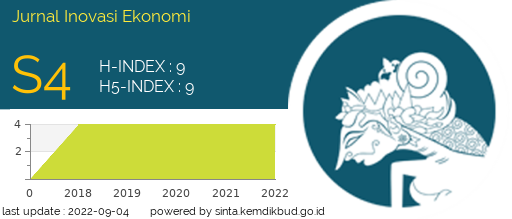Women’s empowering through sharia crowdfunding
DOI:
https://doi.org/10.22219/jiko.v5i01.10469Keywords:
women empowerment, Islamic law, crowdfundingAbstract
The contribution of women entrepreneurship in the economy cannot be underestimated, but the bias in funding approvals is still an issue. In addition, Indonesia, with its majority Muslim population, also faces challenges to make a financial platform that does not conflict with Islamic law. Based on these problems, this paper offers a solution for developing a sharia-based financing model that focuses on women empowerment through crowdfunding.
Downloads
References
Afandi, N., & Ernawati, E. (2018). Sumber Dana dan Persepsi Tentang Bunga Bank oleh Pedagang Muslim (Studi Pedagang di Pasar Basah di Kota Kendari Tahun 2015). Muqtasid: Jurnal Ekonomi Dan Perbankan Syariah, 9(1), 70. https://doi.org/10.18326/muqtasid.v9i1.70-81
Ahmad, A., & Hassan, M. (2007). Riba and Islamic banking. Journal of Islamic Economics, Banking and Finance.
Belleflamme, P., Lambert, T., & Schwienbacher, A. (2014). Crowdfunding: Tapping the right crowd. Journal of Business Venturing. https://doi.org/10.1016/j.jbusvent.2013.07.003
Eveleth, R. (2014). Women Pitching the Same Exact Ideas As Men Still Get Less Funding From Venture Capitalists. Retrieved January 4, 2020, from https://www.smithsonianmag.com/smart-news/venture-capitalists-are-less-likely-invest-identical-companies-if-theyre-pitched-women-180950048/
Grabner, I., & Moers, F. (2013). Management control as a system or a package? Conceptual and empirical issues. Accounting, Organizations and Society. https://doi.org/10.1016/j.aos.2013.09.002
Harrison, R., Leitch, C., & Mcadam, M. (2015). Breaking Glass: Toward a Gendered Analysis of Entrepreneurial Leadership. Journal of Small Business Management. https://doi.org/10.1111/jsbm.12180
Houston, J. F., Lin, C., Lin, P., & Ma, Y. (2010). Creditor rights, information sharing, and bank risk taking. Journal of Financial Economics. https://doi.org/10.1016/j.jfineco.2010.02.008
Kamla, R., & Alsoufi, R. (2015). Critical Muslim Intellectuals’ discourse and the issue of “Interest” (ribā): Implications for Islamic accounting and banking. Accounting Forum. https://doi.org/10.1016/j.accfor.2015.02.002
Kim, J. J., & Hong, S. P. (2016). Design of a secure biometric authentication framework using PKI and FIDO in fintech environments. International Journal of Security and Its Applications. https://doi.org/10.14257/ijsia.2016.10.12.07
Lee, I., & Shin, Y. J. (2018). Fintech: Ecosystem, business models, investment decisions, and challenges. Business Horizons. https://doi.org/10.1016/j.bushor.2017.09.003
Mollick, E. (2014). The dynamics of crowdfunding: An exploratory study. Journal of Business Venturing. https://doi.org/10.1016/j.jbusvent.2013.06.005
Philippon, T., & Philippon, T. (2019). The FinTech Opportunity. In The Disruptive Impact of FinTech on Retirement Systems. https://doi.org/10.1093/oso/9780198845553.003.0011
Rahman, A., & Dewantara, R. Y. (2017). Pengaruh kemudahan penggunaan dan kemanfaatan teknologi informasi terhadap minat menggunakan situs jual beli online. Jurnal Administrasi Bisnis (JAB).
Romanova, I., & Kudinska, M. (2016). Banking and fintech: A challenge or opportunity? In Contemporary Studies in Economic and Financial Analysis. https://doi.org/10.1108/S1569-375920160000098002
Schwienbacher, A., & Larralde, B. (2012). Crowdfunding of Small Entrepreneurial Ventures. SSRN Electronic Journal. https://doi.org/10.2139/ssrn.1699183
Suliswanto, M. S. W., & Rofik, M. (2019). Digitalization of Micro, Small & Medium Enterprises (MSMEs) In East Java, Indonesia. Muhammadiyah International Journal of Economics and Business, 2(1), 34–43. https://doi.org/10.23917/mijeb.v2i1.9380
Tambunan, T. (2015). Financial Inclusion, Financial Education, and Financial Regulation: A Story from Indonesia. SSRN Electronic Journal. https://doi.org/10.2139/ssrn.2641734









